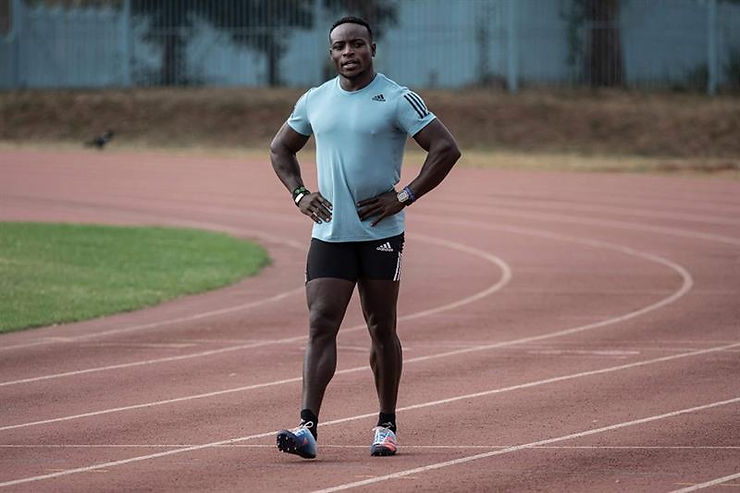By: Ethan Tu
While other world class sprinters were preparing for their 100-meter world championship race, Ferdinand Omanyala was traveling thousands of miles, scrambling to get there in time.
Known as Africa’s fastest man, Ferdinand Omanyala, 26, feared he would not be able to compete in the World Athletics Championships in Eugene, Oregon, because he had not received his visa.
After waking up Thursday morning, still without a visa that was supposed to arrive weeks earlier, Omanyala said, “I had already given up coming here. I was supposed to run on Friday. God works miracles.”
When the long-awaited visa finally arrived Thursday, Omanyala boarded a five-hour flight from Nairobi to Doha. From there he flew 14 hours to Seattle, getting nine hours of sleep in business class. His one-hour flight from Seattle to Eugene, Ore. landed a mere three hours before his race. Upon arrival, he made a beeline to Hayward Field and tried his best to prepare for his upcoming race.
Omanyala finished his first-round heat in third place, clocking in at 10.10 seconds. The time was well off his season-best of 9.85, but good enough to advance him to Saturday’s semifinals, where his effort fell short, and he was eliminated. (Washington Post).
After the race, Omanyala commented about his delayed visa. “It’s really disappointing, and I hope they do better next time. I know they are hosting the Olympics in 2028, so I really hope they learn from this and do much better next time.”
The reason why Omanyala’s visa was delayed is still unclear. Kenyan sports officials claim Omanyala had failed to provide some information on his visa application, but Omanyala’s manager, Marcel Viljoen, told The Washington Post he doubts that explanation. “As far as I know the whole team went to the embassy at the same time. Ferdinand is accustomed to the process and definitely knows the implications of leaving out information. So I doubt it,” he wrote in a WhatsApp message.
Delayed visas are a recurring issue for many countries across Africa. Thousands of other Africans often face far more significant delays than what Omanyala experienced. Many visas are delayed for six to eight months. According to the State Department’s Bureau of Consular Affairs, the average wait time for a U.S. visitor visa appointment in Nairobi is 687 days — more than 3.5 times the average wait time for a U.S. traveler visa in London.
These delays impact Africans who wish to immigrate to the states. They often have to wait years until they receive their visa after they apply. This prevents them from attaining jobs and better living conditions.
Delayed visas negatively impact athletes, students, and anyone wanting to live in the United States. The Kenya Airlift program is an initiative connecting postgraduate students from Kenya to universities across the United States, and visa delays often mean students are not able to begin their studies when school starts.
Sources:











